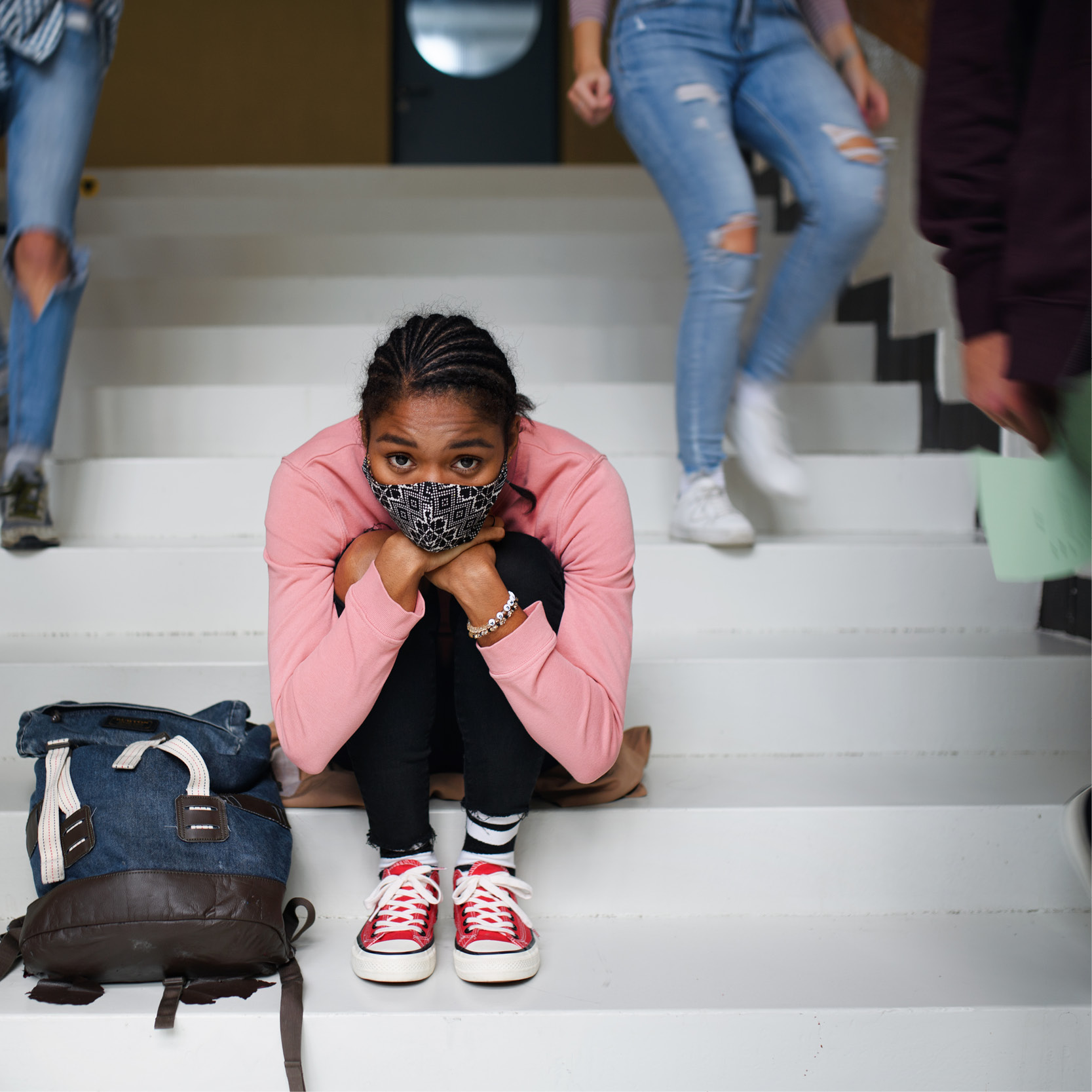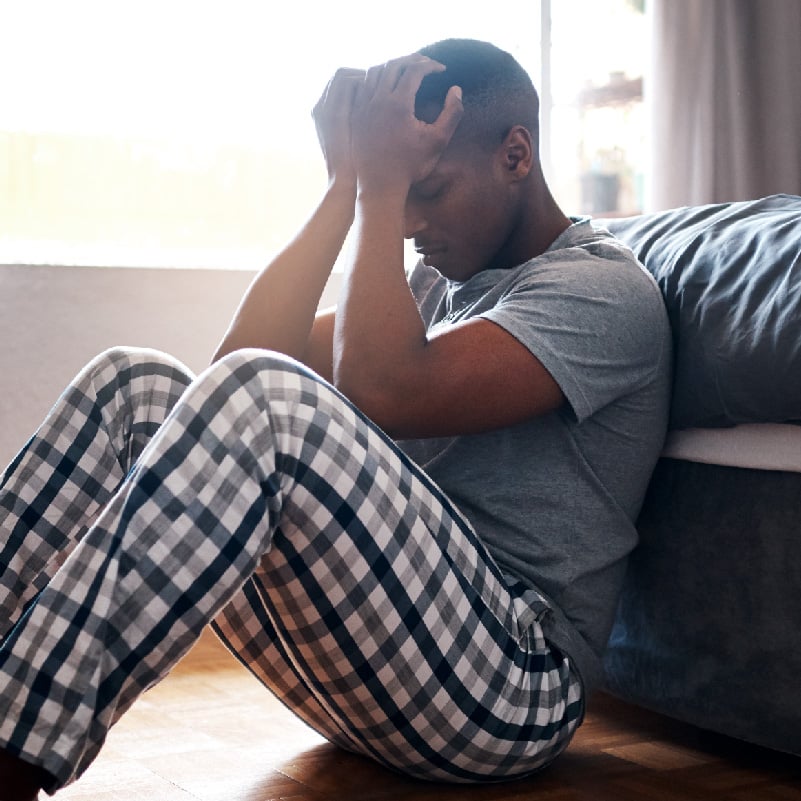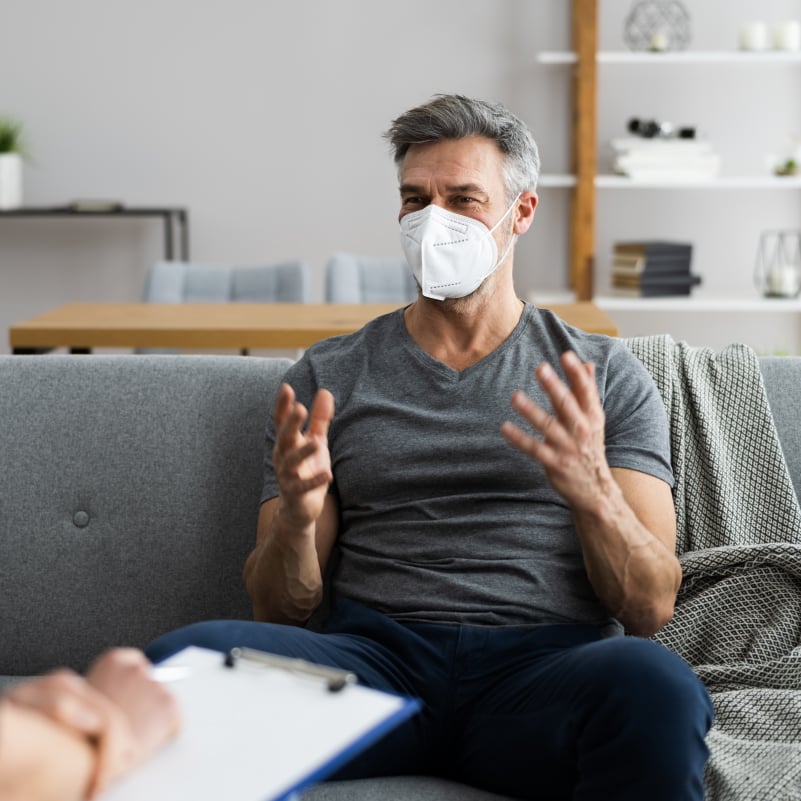The last year and a half have been isolating for many of us, keeping us from those who we love the most. For people living with addiction, that isolation has proven to be even more challenging.
In the U.S. alone, new data from the CDC’s National Center for Health Statistics shows more than 93,000 people died from drug overdoses in 2020. The vast majority of those deaths (69,710) were related to opioids.
Richard Dent, MD, medical director for substance abuse services at Rochester Regional Health, has been at the forefront of many people’s journeys through addiction toward recovery.
A snapshot of Monroe County
The Monroe County Heroin Task Force, which is comprised of the Monroe County Sheriff’s Office, District Attorney’s Office, and several local law enforcement agencies, releases monthly data about the number of overdoses and fatalities stemming from opioids.
The number of overdoses has declined over the last three years, but the percentage of deaths among those overdoses has risen.
2018:
- Overdoses: 1,133
- Deaths: 166
2019:
- Overdoses: 839
- Deaths: 127
2020:
- Overdoses: 726
- Deaths: 137
2021 (as of June 30)
- Overdoses: 330
- Deaths: 72
There were many factors that resulted in a national rise in the number of deadly overdoses. In the Rochester community, experts with Rochester Regional Health say some included fentanyl becoming a predominant presence in drugs such as heroin and cocaine, increased anxiety surrounding the COVID-19 pandemic, and alcohol and sedative abuse to cope with various stressors.
How the pandemic changed treatment
Like every industry in March 2020, Rochester Regional Health shifted the way they worked with people. Most services immediately shifted toward remote care – telehealth visits became more prevalent and groups moved from meeting in person to over the phone or over video conferencing.
Instead of visiting high-risk individuals 3-5 times each week to check in on them, they relied on Zoom video calls and group phone calls. For people who may not have had consistent access to the Internet or a phone, that was often a barrier to treatment. Locations including Unity Chemical Dependency Clinic on Long Pond Road kept their doors open for those who might want to come in.
“If anyone wanted to come in here, they could,” Dr. Dent said. “We stayed on site the whole time. So if people wanted to come in and they didn’t have a phone, we had a video computer they could sit in front of and can call their therapy sessions.”
One setback that impacted both patients and staff was the lack of toxicology testing in the early days of the pandemic. Since people were randomly tested at in-person group meetings as a way of staying accountable to themselves and others, the cancellation of group meetings meant those screenings were significantly scaled back during the pandemic.
“We were mandated by the state not to have on-site groups,” Dr. Dent said. “So that was really a regulation. So that regulation, while understandable, severely impacted our ability to provide structure and support to those in early recovery.”
Where do things stand now?
People seeking treatment began hinting at a need to resume recovery connections as early as summer 2020, according to Dr. Dent.
A rise in the number of telehealth calls picked up to the point where they matched pre-COVID numbers. Most of the calls, however, were one-on-one calls. They did not connect individuals to groups who could hold them accountable.
“Isolation is the enemy of recovery” - Richard Scott Dent, MD
In the early months of 2021, the increased number of COVID-19 vaccinations and subsequent drop in the number of overall COVID-19 cases led to a further shift in restrictions. The threshold for people seeking in-person treatment was gradually lowered – although those who were an imminent threat to themselves were always allowed in.
“Very high-risk people could always come in, no matter what,” Dr. Dent said. “The risk of overdose was really higher than their risk of dying from COVID.”
High-risk groups are now back on site. Anyone can now walk into a chemical dependency facility and request an evaluation.
Not too long ago, people were more apt to have to be ready for treatment before they would contact anyone involved in chemical dependency programs. But now because of the rise of overdoses and increased presence of chemicals such as fentanyl and xylazine in some of these drugs, those same people are starting to seek treatment earlier.
“Now people knock on our door because they’re scared of the overdose,” Dr. Dent said. “They’re scared of knowing what’s in the community, of what their friend took, of what sent them to the ED, or what they heard on the news. And they want to test the waters and find out what recovery could look like.”
Helping patients and their families
Any family member who wants to be part of their loved one’s journey toward recovery will have that need met in one form or another. If a person working through their addiction is already connected to Rochester Regional Health for treatment, the process will look different compared to someone who isn’t connected.
As long as the patient invites family to be part of their treatment, family therapy sessions are included if everyone is agreeable to it. Another resource for Family education is another tool, where family comes in and do groups. This includes teaching about what addiction is, the foundations of addictions, as well as individual tools for coping and supporting a person working through active addiction.
If a person struggling with substance use or addiction is not engaged with Rochester Regional Health, staff will still work with family members on specific issues and empower them with coaching skills to respond better to different dynamics in the home. The goal of the training is to better prepare each family member to support a person going into treatment.
People are also referred to family-focused support groups, such as:
For those who want to be trained in helping others through recovery, they can take courses to become a Certified Recovery Advocate. Certified Recovery Advocates are trained in motivation and techniques to help people to be better coaches for their family members who are living with their addiction.
There are also options for teens who need help for substance abuse disorders. Rochester Regional Health partners with Monroe BOCES West at Westside Academy. The unique program allows students to work toward a New York State Regents diploma while going through a clinic treatment program to treat addiction.
Especially now that COVID-19 hospitalization and death rates are remaining low, people who are considering treatment for substance abuse should act on it.
“The risk of harm coming from substance abuse disorder – whether it be from illicit drugs, prescription drugs, or alcohol – is very very high,” Dr Dent said. “If you’re vaccinated and you’re in Monroe County where the rates are very low, it is time to get reconnected to treatment.”
Changes coming down the line
Before the COVID-19 pandemic changed the course of so many things, Rochester Regional Health was already starting to reimagine how their care could meet people where they were at as individuals, instead of taking a more rigid one-size-fits-all approach.
But when COVID-19 cases forced in-person meetings to shut down, instead of seeing those changes grind to a halt, the shift toward more individualized treatment and recovery happened more quickly. Some of those changes included:
Specialized telemedicine groups: Clients can now self-select the type of group they take part in. Not everyone is required to do group care if they are not ready for it. This reflects a focus on person-centered care.
More hires: Five new peer recovery coaches have been hired in the last 18 months. They serve to encourage people along their journeys toward recovery, and also link them to community services and programs as they are needed
Diverse options for treatment: Since each person’s struggle with addiction began differently, their journey toward recovery starts differently. This means ensuring clients have access to different options that work for them, including group therapy, one on one services, housing needs, mental health treatment, medication-assisted treatment, or access to a residential or halfway house
Spanish-speaking groups: Having support for people who are non-English or ESL speakers is a goal Rochester Regional Health wanted to achieve. There are now outpatient groups and inpatient services which can accommodate non-English speakers at Rochester Regional Health Services chemical dependency.
Resources available
If you are someone struggling with addiction or know someone working through it, there is a lot of shame and stigma associated with addiction and being an addict.
“Don’t play into that. Remember that substance use disorder is a chronic disease, not just a behavior,” Dr. Dent said. “Family members can set safe boundaries and limits, but still treat their loved ones with compassion and respect as they work towards recovery.”
The best step to take is to call (585) 723-SAFE. That call will be answered a therapist, peer, or other person who truly understands addiction and recovery, and will be able to get help for the person on the line as quickly as possible.








